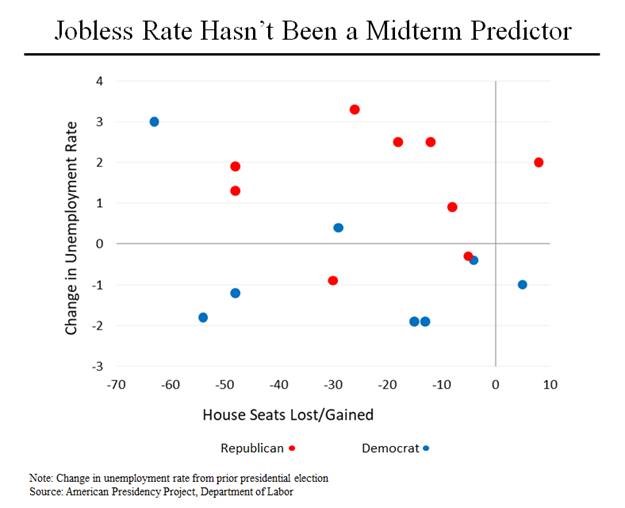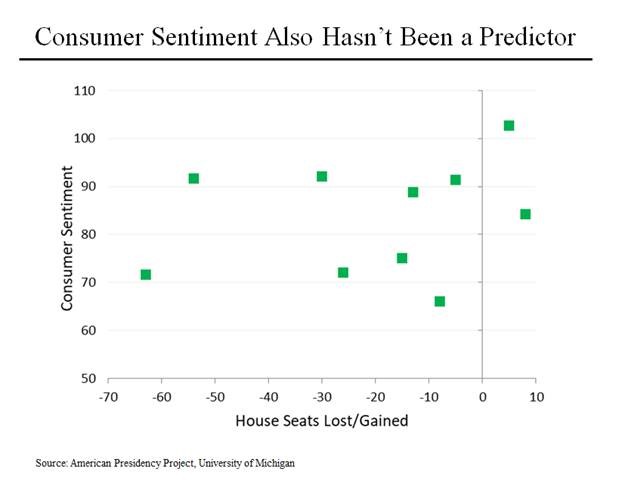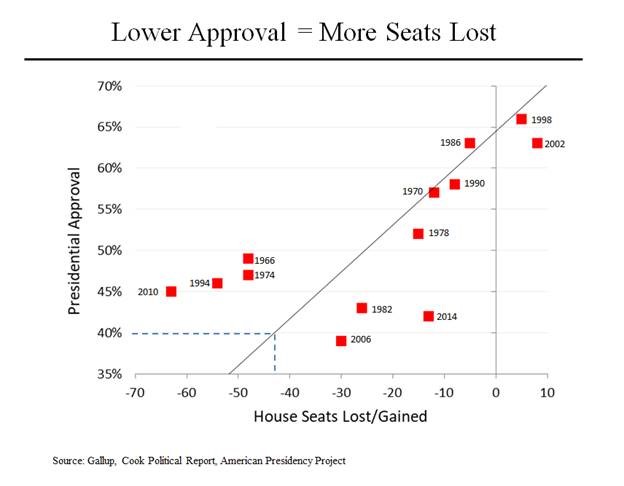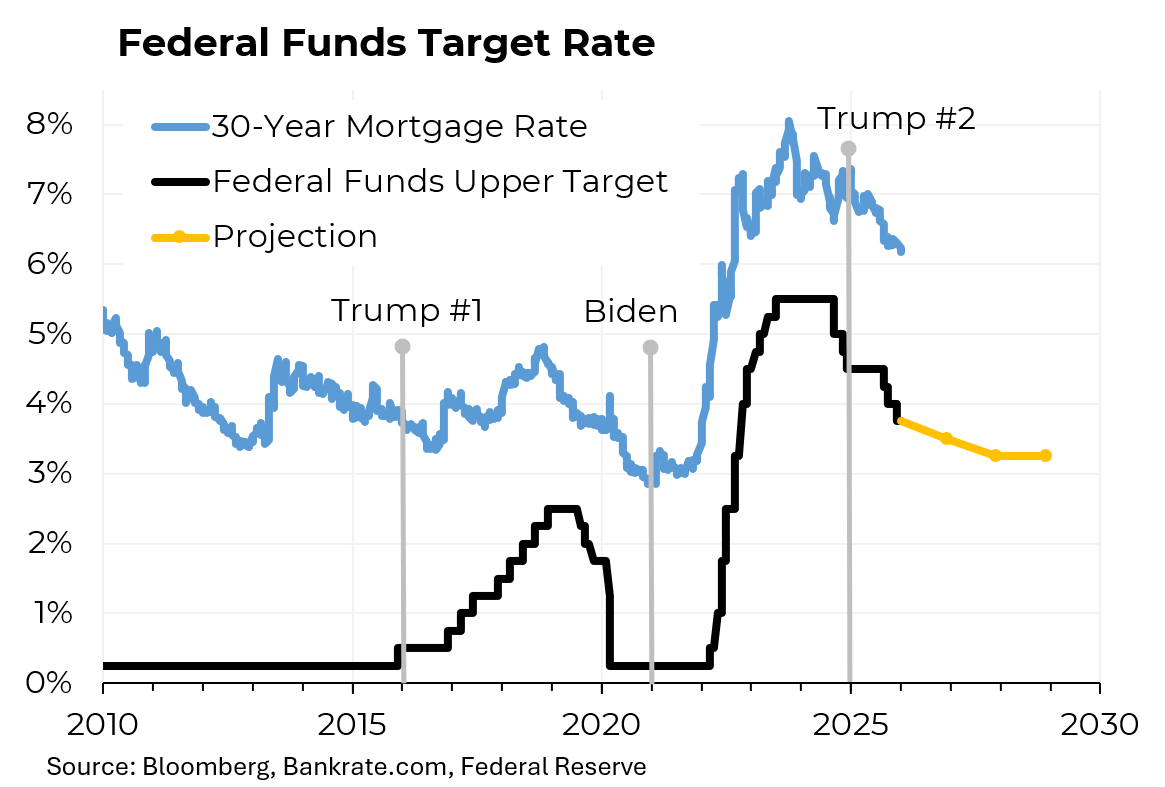On MSNBC’s Morning Joe today, Steven Rattner presented charts showing how a strong economy is not a key determinant for whether the president’s party historically retains control of Congress in the midterm elections.
As the mid-terms grow near, will the economy prove to be the tailwind that Republicans hope? Or will President Trump’s low approval rating be a boon for the Democrats? History offers some clues.
As is evident from this chart, there is no visible correlation between changes in the unemployment rate and the fortunes of the party in power, going all the way back to 1950. Yes, it was true in 2010 that Democrats lost 63 House seats and 6 Senate seats in the wake of a 3 percentage point increase in the jobless rate. But it was also true that in 1994, Democrats lost 54 House seats and 8 Senate seats even though unemployment had dropped from 7.4% to 5.6% during Bill Clinton’s first two years in office. In 1990, a worsening economy cost the Republicans House seats but in 1986, an improving economy didn’t help them (they lost 5 House seats and 8 Senate seats).
Similarly, consumer sentiment – another of President Trump’s favorite economic statistics — has also not been a good predictor. Reasonably happy Americans didn’t help Bill Clinton in 1994 much more than unhappy Americans hurt President Obama in 2010. And in 1990, George H.W. Bush fared reasonably well (only 8 House seats and 1 Senate seat lost) despite the weakest consumer sentiment of any mid-term election since at least 1978.
But what does show a clear and direct correlation is the incumbent president’s approval ratings and the outcome of the mid-term House elections. High approval ratings helped both Mr. Clinton and George W. Bush in 1988 and 2002, respectively, while weak approval ratings significantly hurt Mr. Obama in 2010 and Mr. Clinton in 1994. (Some notable outperformers were Bush 43 in 2006, Reagan in 1982 and Obama in 2014).
By this yardstick, Mr. Trump’s current approval rating of 40% (according to Gallup) would translate into a loss of 42 House seats. Put another way, when the president’s job approval rating is under 50%, the party in the White House has lost, on average, 40 House seats (and also 5 Senate seats, although that would be almost impossible this year because of the unusual Senate map).








